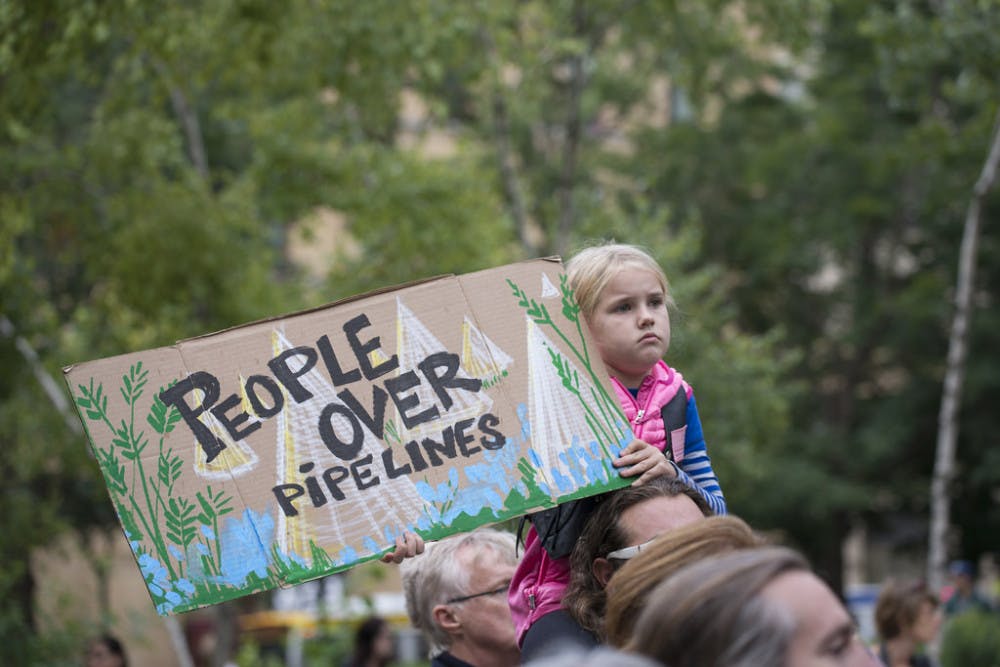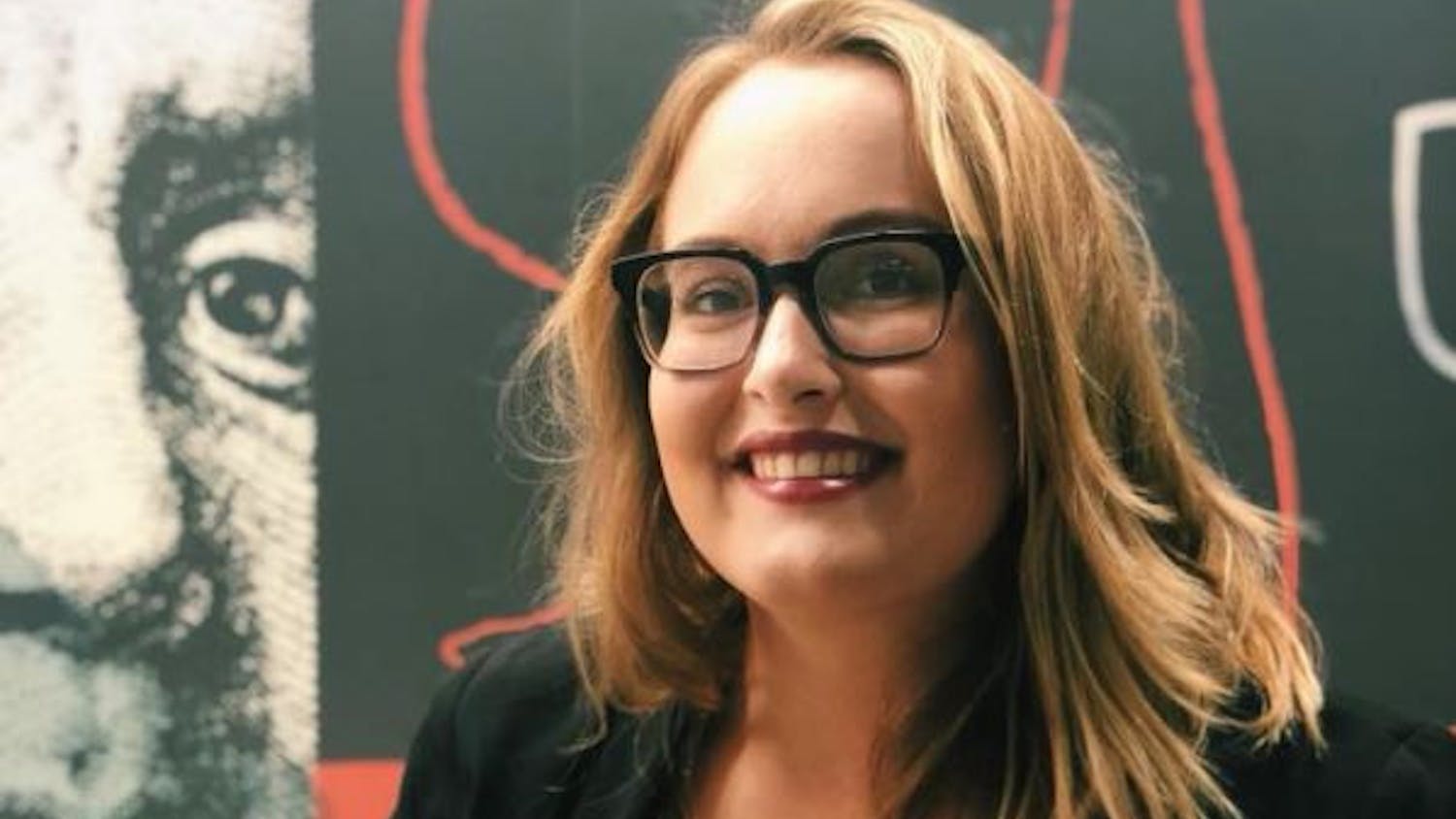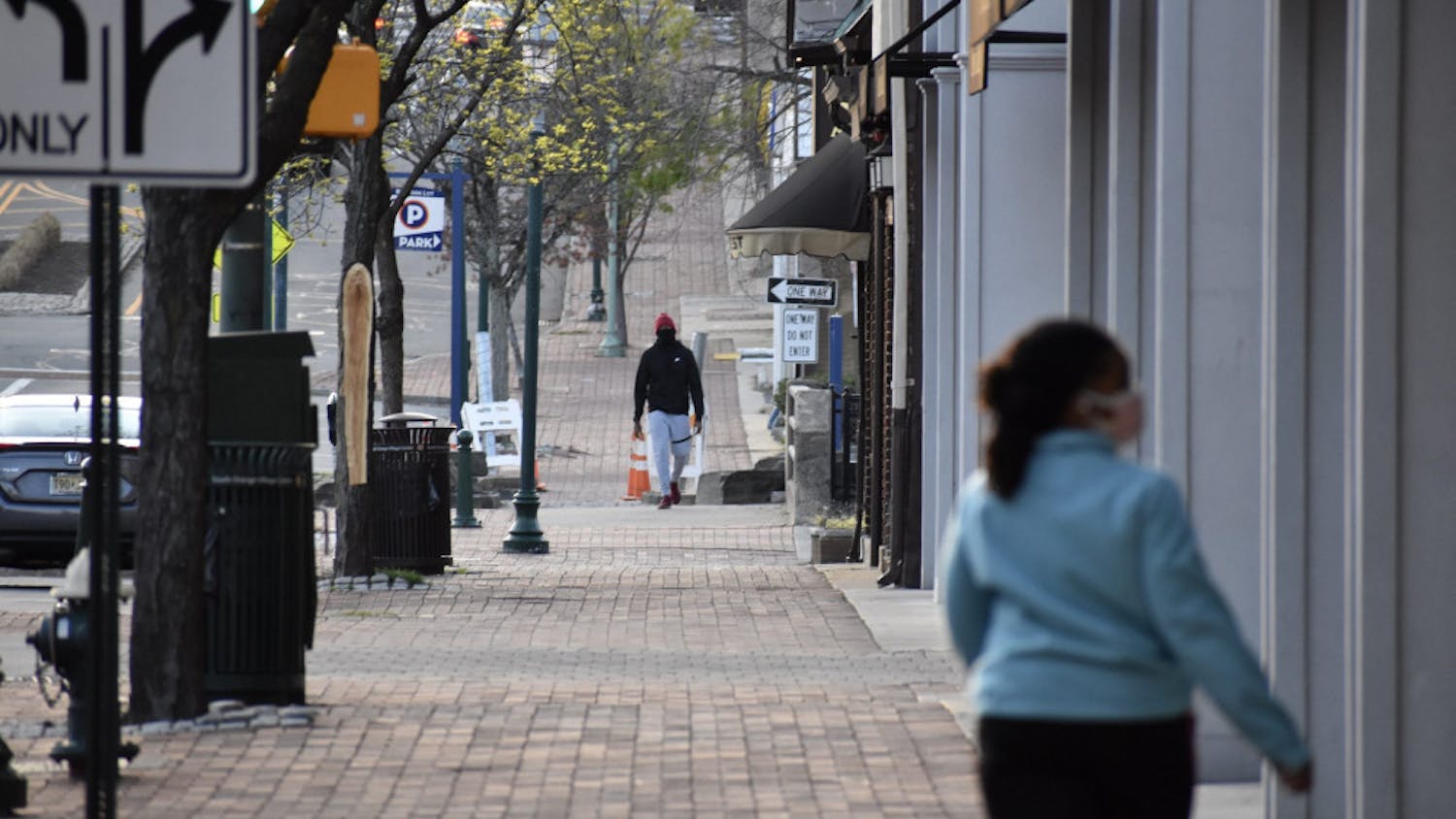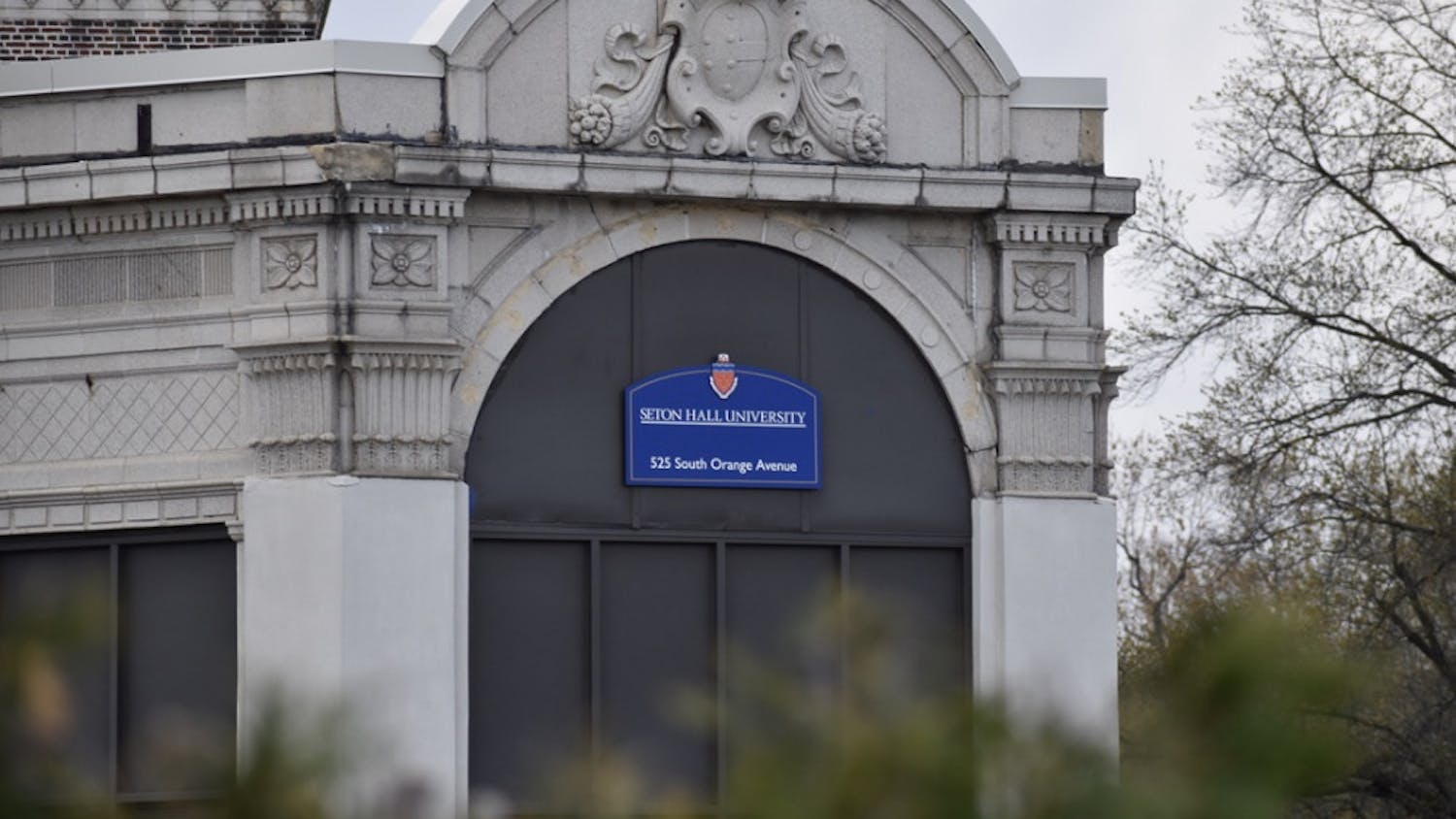[caption id="attachment_16428" align="aligncenter" width="838"] Photo via Flickr/Fibonacci Blue[/caption]
The proposed implementation of the Dakota Access Pipeline has sparked social media attention and outrage among people who do not want the pipeline to interfere with residents in its path.
While people are using platforms like Twitter to speak up for those directly impacted by the pipeline, many Americans will use the product the pipelines will bring. The problem arises in critiquing the proposed project without examining one’s own use of energy.
Take transportation for example. Often, individuals will drive to their destination. However, students that live on college campuses have other means available, like Uber.
It’s quick, easy and inexpensive to the average user.
But consider that many college campuses, including Seton Hall, offer shuttle services. Seton Hall not only has its SHUFLY Shuttle service, but SafeRide too, which is essentially a free Uber service provided by the school running within one mile of campus.
Like all public transportation, the SHUFLY runs on a schedule, and that schedule is not always convenient to people who want to get to their destination as quickly as possible.
Alternatives to that service for a person without a car are then Uber or walking. Yet, the more that cars are driven, the more gasoline that needs to be produced.
This use of cars and Uber is what begs the need for the Dakota Access Pipeline to carry North Dakota oil to refineries. Yet, some of those who are expressing on social media the need to ban the Dakota Access Pipeline certainly are drivers and users of the Uber service.
This is a conflict of interests.
The need for pipelines is apparent; the problem lies with deciding where to put them. The Dakota Access Pipeline will pass through the peaceful people of Standing Rock in Arizona, whose protests have been met with rubber bullets and tear gas administered by police in the area.
Additionally, in the past, efforts to frack for natural gas have resulted in fracking chemicals contaminating water of surrounding homes.
The people that are impacted do not ask for these effects of pipelines placed in their area.
Some are displaced, some cannot drink water, yet Americans need the oil and natural gas supplied by these lines.
As we live in dorms on campus that are heated by natural gas or oil, and come from homes that are heated the same way, do we have the grounds to criticize or oppose projects that bring in these products if we are unwilling to wait for the next SHUFLY and instead call for an Uber, which on a per capita basis will use a lot more gasoline than a full SHUFLY?
While people may be fighting online for the homes of those who are impacted, they should think about the effect the next Uber will have before they call it and try to use means of public transportation instead.
Elizabeth Swinton is a television production major from Linden, N.J. She can be reached at elizabeth.swinton@student.shu.edu.
Photo via Flickr/Fibonacci Blue[/caption]
The proposed implementation of the Dakota Access Pipeline has sparked social media attention and outrage among people who do not want the pipeline to interfere with residents in its path.
While people are using platforms like Twitter to speak up for those directly impacted by the pipeline, many Americans will use the product the pipelines will bring. The problem arises in critiquing the proposed project without examining one’s own use of energy.
Take transportation for example. Often, individuals will drive to their destination. However, students that live on college campuses have other means available, like Uber.
It’s quick, easy and inexpensive to the average user.
But consider that many college campuses, including Seton Hall, offer shuttle services. Seton Hall not only has its SHUFLY Shuttle service, but SafeRide too, which is essentially a free Uber service provided by the school running within one mile of campus.
Like all public transportation, the SHUFLY runs on a schedule, and that schedule is not always convenient to people who want to get to their destination as quickly as possible.
Alternatives to that service for a person without a car are then Uber or walking. Yet, the more that cars are driven, the more gasoline that needs to be produced.
This use of cars and Uber is what begs the need for the Dakota Access Pipeline to carry North Dakota oil to refineries. Yet, some of those who are expressing on social media the need to ban the Dakota Access Pipeline certainly are drivers and users of the Uber service.
This is a conflict of interests.
The need for pipelines is apparent; the problem lies with deciding where to put them. The Dakota Access Pipeline will pass through the peaceful people of Standing Rock in Arizona, whose protests have been met with rubber bullets and tear gas administered by police in the area.
Additionally, in the past, efforts to frack for natural gas have resulted in fracking chemicals contaminating water of surrounding homes.
The people that are impacted do not ask for these effects of pipelines placed in their area.
Some are displaced, some cannot drink water, yet Americans need the oil and natural gas supplied by these lines.
As we live in dorms on campus that are heated by natural gas or oil, and come from homes that are heated the same way, do we have the grounds to criticize or oppose projects that bring in these products if we are unwilling to wait for the next SHUFLY and instead call for an Uber, which on a per capita basis will use a lot more gasoline than a full SHUFLY?
While people may be fighting online for the homes of those who are impacted, they should think about the effect the next Uber will have before they call it and try to use means of public transportation instead.
Elizabeth Swinton is a television production major from Linden, N.J. She can be reached at elizabeth.swinton@student.shu.edu.

Comments




